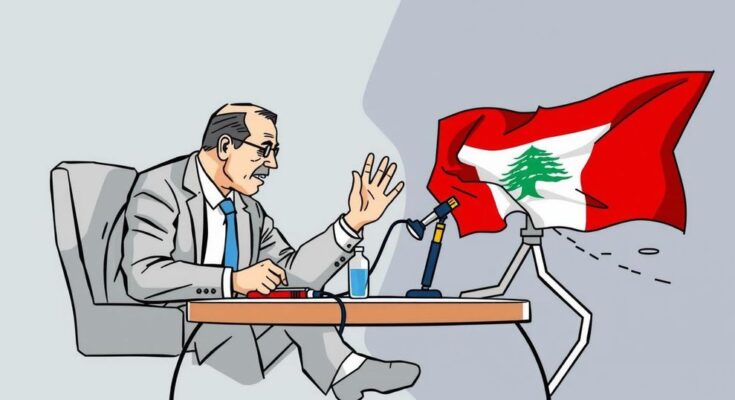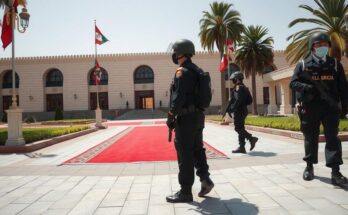Israel and Lebanon are nearing a ceasefire deal amid escalating conflicts with Hezbollah, with discussions on a proposed 60-day truce that may include troop withdrawals and increased military presence in the affected areas. While significant progress has been reported, domestic opposition and enforcement concerns remain potential obstacles to finalizing the agreement.
Recent reports suggest that Israel and Lebanon are nearing an agreement on a ceasefire, as discussions intensify within the Israeli cabinet regarding a potential 60-day truce aimed at halting the ongoing clashes with Hezbollah, the Iranian-affiliated Lebanese militia. According to Israeli officials, crucial aspects of the deal involve the withdrawal of Israeli troops from southern Lebanon and the dismantling of Hezbollah’s presence in that region.
The situation remains volatile, as exchanges of fire have escalated amid negotiations, with approximately 250 projectiles launched at Israel from Lebanon on Sunday alone. Although most of these projectiles were intercepted, the Israeli Air Force has continued its airstrikes on suspected Hezbollah sites in Beirut and other areas.
Under the proposed ceasefire framework, the Lebanese army would bolster its presence in areas vacated by both Israeli forces and Hezbollah fighters, as corroborated by a Western diplomat speaking anonymously. Lebanese Deputy Parliament Speaker Elias Bou Saab remarked that “there are now no serious obstacles” impeding a ceasefire agreement.
A significant hurdle regarding the monitoring of the ceasefire has reportedly been resolved, thanks to the establishment of a five-nation committee, headed by the United States and including France. Nonetheless, a key point of contention remains Israel’s demand for freedom to take military action if it perceives threats from Hezbollah returning south of the Litani River—and this condition has prompted pushback from both the Lebanese government and Hezbollah. US envoy Amos Hochstein has emphasized the urgency of finalizing this ceasefire deal.
Concerns regarding the enforcement of the ceasefire, given the limited capacities of the UN Interim Force in Lebanon and the Lebanese Army, appear to have been addressed. However, domestic opposition in Israel, particularly from National Security Minister Itamar Ben Gvir, poses risks to the agreement, as he has publicly condemned any ceasefire initiative as “a grave mistake,” asserting that the current situation presents a rare opportunity to decisively defeat Hezbollah.
Israeli officials have indicated that any cessation of hostilities should adhere to United Nations Security Council Resolution 1701, which originally sought to resolve tensions between Israel and Hezbollah following their 2006 conflict. Both countries have accused each other of violations related to this resolution, complicating the dialogue.
Furthermore, Israel aims to create conditions conducive for the safe return of approximately 60,000 residents displaced from northern communities due to conflict. In Lebanon, the humanitarian toll has been severe, with over 3,750 lives lost and more than one million people displaced since the recent escalation in September 2023. Recent incursions have led to escalated casualties on both sides, with significant infrastructure damage reported in the wake of Hezbollah’s attacks and Israeli counterstrikes.
This news arises amidst a backdrop of escalating hostilities between Israel and Hezbollah, defined by sustained exchanges of fire and significant military actions since late September 2023. The proposed ceasefire represents a critical juncture for both parties as they seek to address the humanitarian crisis resulting from the conflict. The need for a resolution is underscored by the considerable loss of life and displacement, which has exerted additional pressure on political leaders in both nations to find a viable path towards peace.
In summary, Israel and Lebanon are reportedly close to a ceasefire agreement following intensified negotiations aimed at halting the violence involving Hezbollah. The proposed modalities of the ceasefire highlight significant troop withdrawals and enhanced military oversight, though domestic opposition and historical grievances complicate finalization. The ongoing humanitarian crisis amplifies the stakes of these discussions, stressing the urgency for both sides to reach a commitment to peace.
Original Source: www.bbc.co.uk




